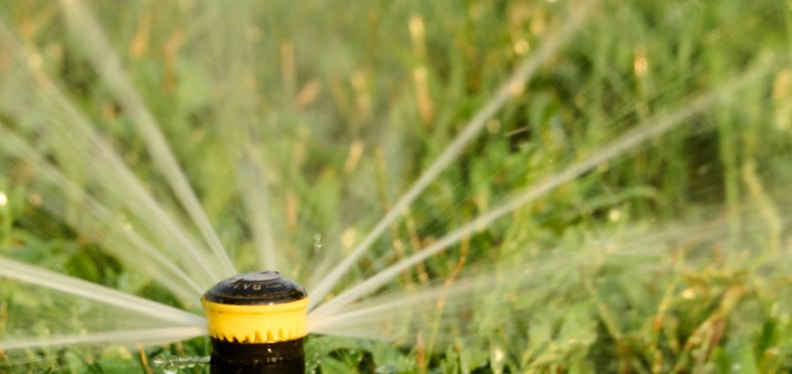|
The Wellesley Department of Public Works (DPW) needs your help to reduce the current demand for water in Wellesley and has issued a State of Water Supply Conservation Declaration. The decision requires residents and businesses to begin following specific water restrictions effective Monday, May 23, 2022. The requirements include a mandatory alternate day outdoor watering schedule for homes and businesses, a ban on outdoor watering between 9 a.m. and 5 p.m., and a request to reduce the amount of outdoor watering time by 20 percent. Complete details are included below.
According to DPW officials, the measures are needed to ensure that Wellesley’s water supply continues to protect the health and safety of residents, including providing enough water necessary to fight fires. Due to drier than normal conditions this spring, on May 11, the Massachusetts Executive Office of Energy and Environmental Affairs (EEA), declared a Level 1 – Mild Drought status for the Southeast Region. Additionally, water supplies in Town are lower than normal because the Morses Pond water treatment plant was taken offline in May 2021 after tests showed higher than allowed levels of PFAS6 substances. This treatment plant supplies over one million gallons of water per day to homes and businesses and its loss is causing a shortage in the system. While the Morses Pond treatment plant is scheduled to come back on line this June, these restrictions are necessary to ensure adequate supply for essential water use. “We’re asking for cooperation from everyone in the community by following these restrictions as we head into the summer months,” said DPW Director Dave Cohen. Outdoor Water Use Alternate Day Restrictions Based upon street address numbers, nonessential outdoor water use IS ALLOWED according to the following schedule: • Odd numbered addresses are restricted to Tuesday, Thursday, and Saturday. • Even numbered addresses are restricted to Wednesday, Friday, and Sunday. • Nonessential outdoor use of water on Monday is prohibited. Nonessential outdoor watering hours are restricted to before 9:00 a.m. and after 5:00 p.m. Outdoor watering is prohibited during the daytime to ensure adequate water supply for typical essential uses and to avoid loss through evaporation. Essential uses of water are: • For health and safety reasons • Irrigation to establish a new lawn and new plantings between the months of May and September • Agricultural operations to maintain livestock and crops • Irrigation of lawns, gardens, flowers and ornamental plants by means of a hand-held hose Nonessential uses are: • Irrigation of lawns via sprinklers or automatic irrigation systems • Washing of vehicles, except in a commercial car wash or as necessary for operator safety • Washing of exterior building surfaces, parking lots, driveways or sidewalks, except as necessary to apply surface treatments such as paint, preservatives, stucco, pavement, or concrete Reduce Use While Watering To help maintain appropriate water levels in Town storage tanks, the DPW is also asking residents to reduce the amount outdoor watering time by 20%. For example, if you have an automated irrigation system with a 15-minute watering time in each zone, you should reduce each zone’s watering duration by at least 3 minutes. Additional recommendations to help reduce water use include checking for and repairing any water leaks in irrigation systems, faucets, showerheads, and toilets. Visit the DPW webpages for more information on water conservation. The Natural Resources Commission also offers tips for healthy and sustainable lawn and landscape care. Impact of PFAS6 on Water Restrictions The DPW’s Water Division acknowledges that the current PFAS6 situation is a major reason for these new rules. PFAS6 is a new drinking water standard which tests for the sum of six PFAS compounds. PFAS are Perand PolyFluorAlkyl Substances, a group of numerous human-made chemicals used since the 1950s to manufacture stain-resistant, water-resistant, and non-stick products. This drinking water standard is set to protect against adverse health effects for all people consuming the water. “It’s important to note that the Morses Pond plant was the only one in Wellesley with higher than allowed PFAS6 levels. We have been working to implement a temporary remediation system at the Morses Pond plant and look forward to becoming operational in the coming weeks” said Water and Sewer Superintendent Bill Shaughnessy. “Since May 3, 2021, all water for Wellesley is coming from the Town’s two other treatment plants and from the Quabbin and Wachusett reservoirs operated by the Massachusetts Water Resources Authority (MWRA). All of the water provided to our residents meets all current MassDEP water quality standards.” Residents with individual concerns about PFAS should contact their physicians or other health professionals. For complete PFAS information, visit the DPW and MassDEP webpages. Comments are closed.
|
Categories
All
|
Sign up for updates! |
Contact |
Support us! |
Follow us!Copyright © 2024 By Sustainable Wellesley
|


 RSS Feed
RSS Feed